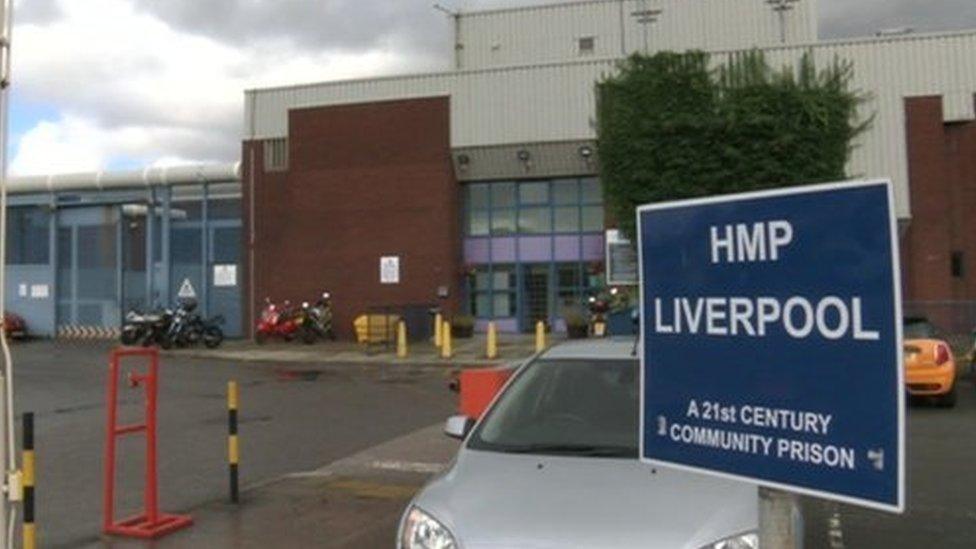HMP Liverpool: 'Worst prison' conditions 'improve dramatically'
- Published
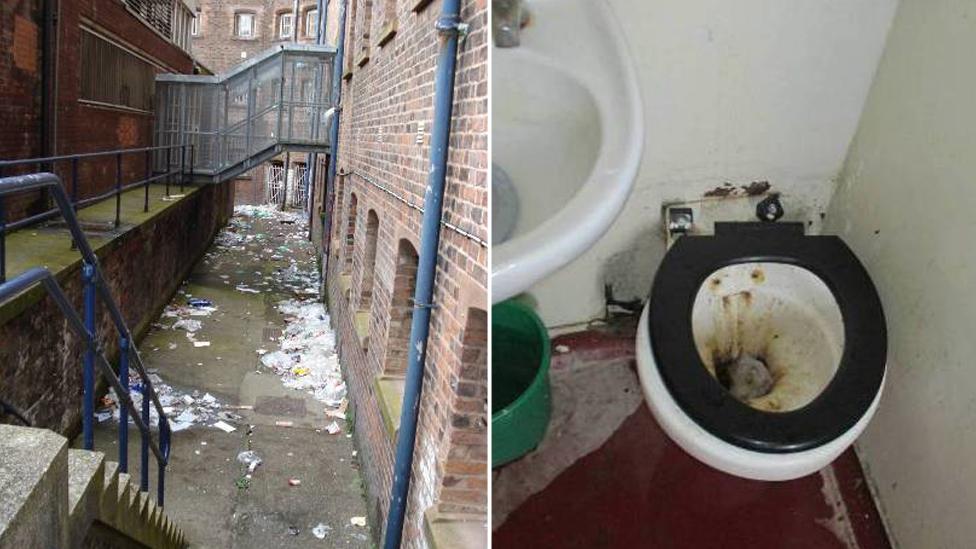
Two years ago, inspectors found filthy toilets and some areas so hazardous they could not be cleaned
Standards at a jail condemned two years ago for the "worst living conditions" ever seen by inspectors have improved dramatically, a report has concluded.
In September 2017, Her Majesty's Chief Inspector of Prisons Peter Clarke found an "abject failure to offer a safe and decent" environment at HMP Liverpool.
A new governor was appointed, the number of inmates reduced from 1,145 to 674, and the prison was refurbished.
But Mr Clarke said further work still needed to be done at the prison.
His report, which followed an inspection in August and September, concluded there had been a dramatic improvement at the Category B prison, known locally as HMP Walton.
Two years ago, inspectors found rats and cockroaches were rife in the Victorian prison, with many inmates living in "squalid" conditions.
One area was deemed so dirty, infested and hazardous it could not be cleaned, while inspectors also found exposed electrical wiring and filthy, leaking toilets.
Violence, fuelled by it being "easy or very easy" for prisoners to get drugs, was also on the increase.
The 2017 report said at the heart of the problems was a failure of leadership at all levels.
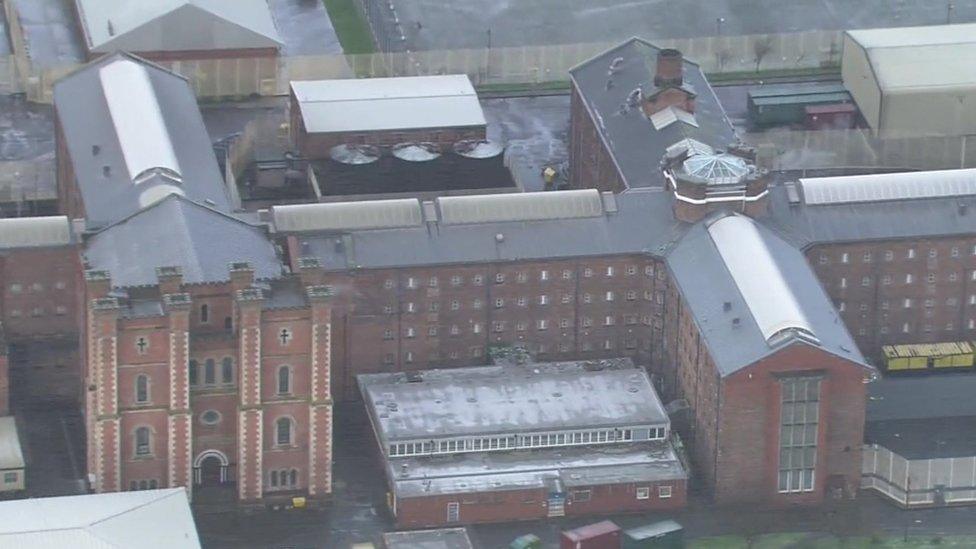
Conditions at HMP Liverpool have improved dramatically since the last inspection
But following the latest inspection, Mr Clarke said he was pleased that 49 out of 72 recommendations made in 2017 had been fully achieved.
"This is an exceptionally high achievement rate and is particularly creditable in light of the dire situation at the prison only two years before," he said.
The reforms have had a "dramatic" impact, he said, adding the prison's improvement from the lowest grade of "poor" to "good" represented a "remarkable achievement".
"The squalor and filth we saw in 2017 had gone," Mr Clarke said, adding that it was "replaced by clean and decent living conditions for the vast majority of prisoners".
"It is important to understand that this had not been brought about simply as a result of the population being reduced and resources channelled towards the prison," he said.
While that had helped, he said the "real change had been in the quality of leadership and teamwork there was now a culture of care that I simply could not see in 2017".
Mr Clarke said much work still needed to be done, with concerns expressed about the continuing rise in violence.
Frances Crook, chief executive of the Howard League for Penal Reform, said the "encouraging" overall report showed "what can be achieved when action is taken to tackle prison overcrowding".
Calling for a reduction in overall prisoner numbers across England and Wales, she said "moving men from one struggling prison to another does not address the issues in the system as a whole - it merely causes pressure to build elsewhere".
- Published20 January 2018
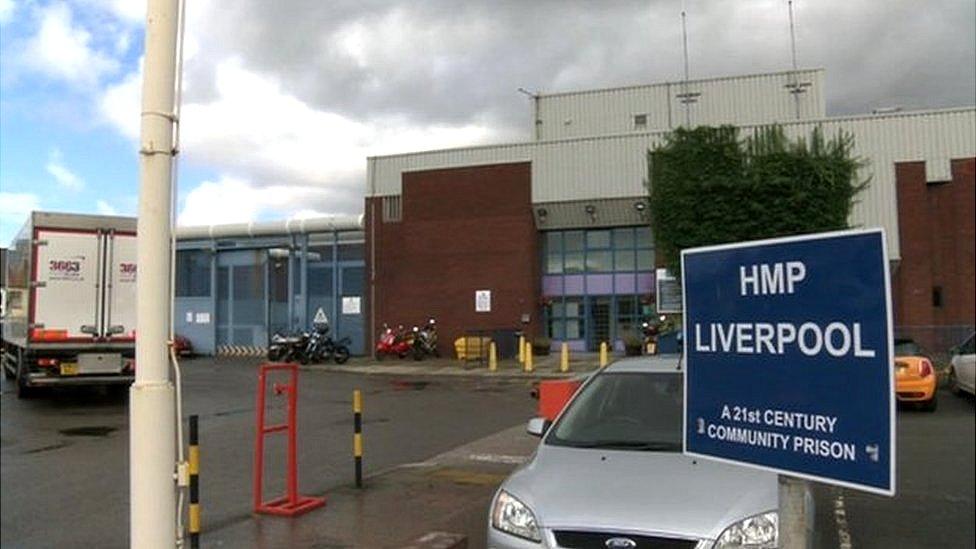
- Published19 January 2018
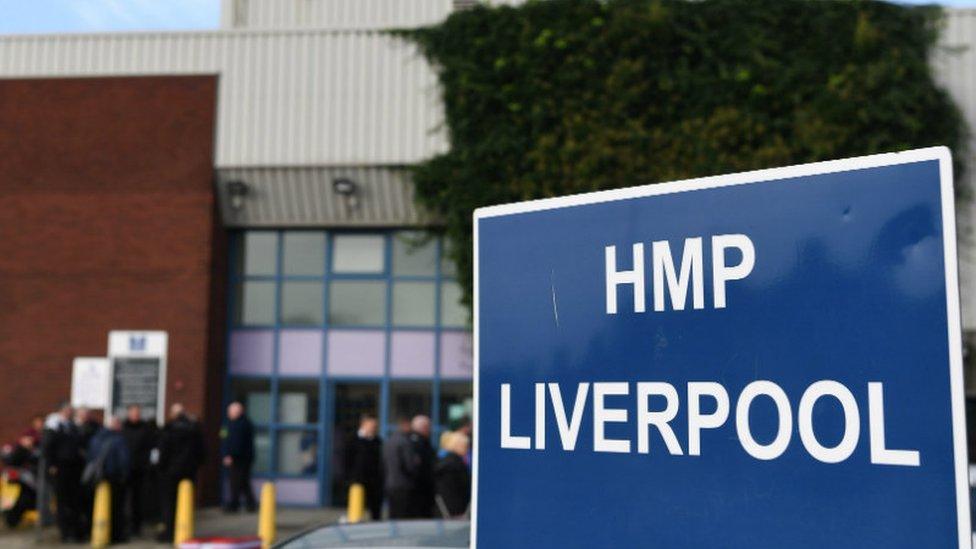
- Published18 December 2017

- Published20 October 2015
